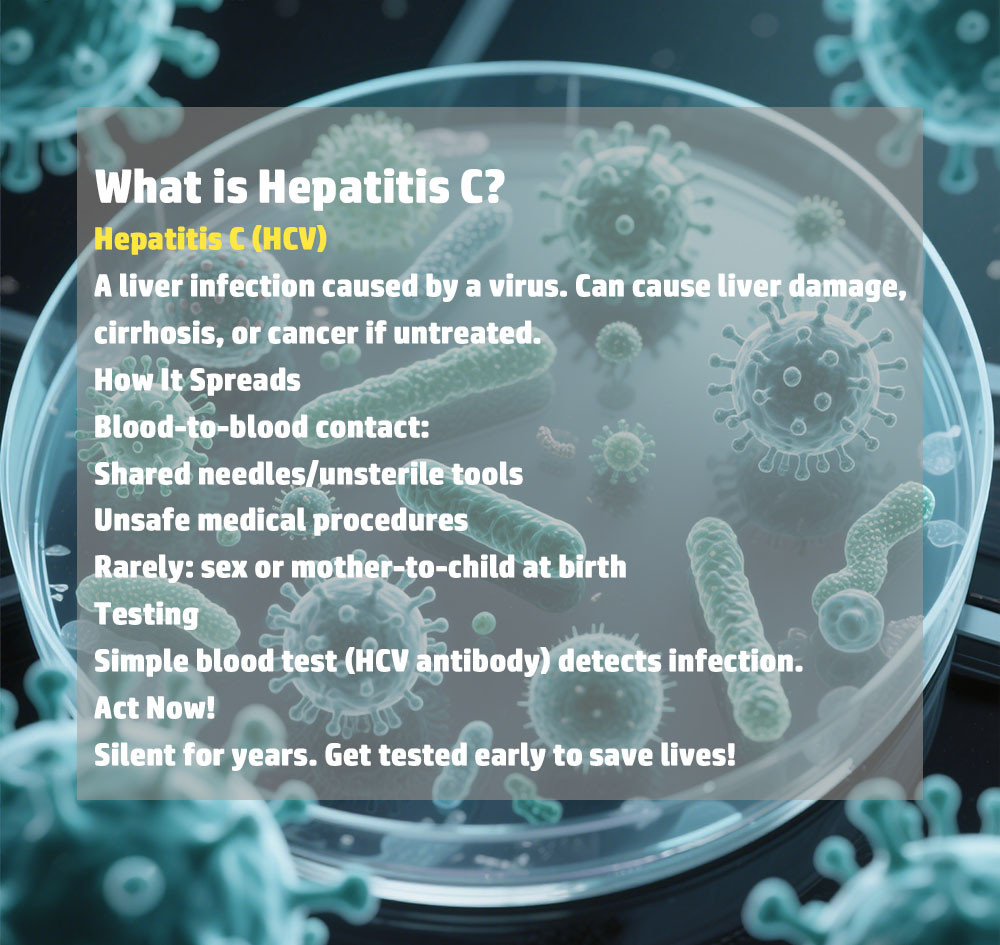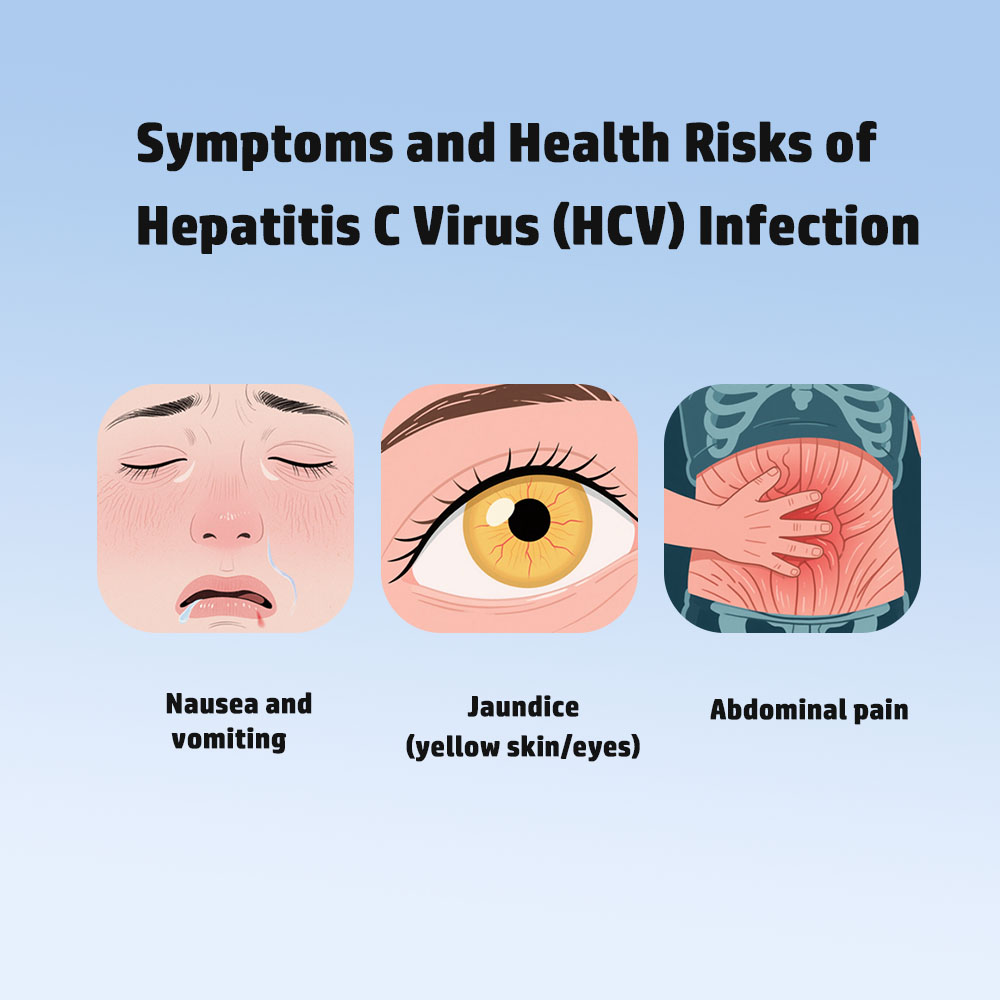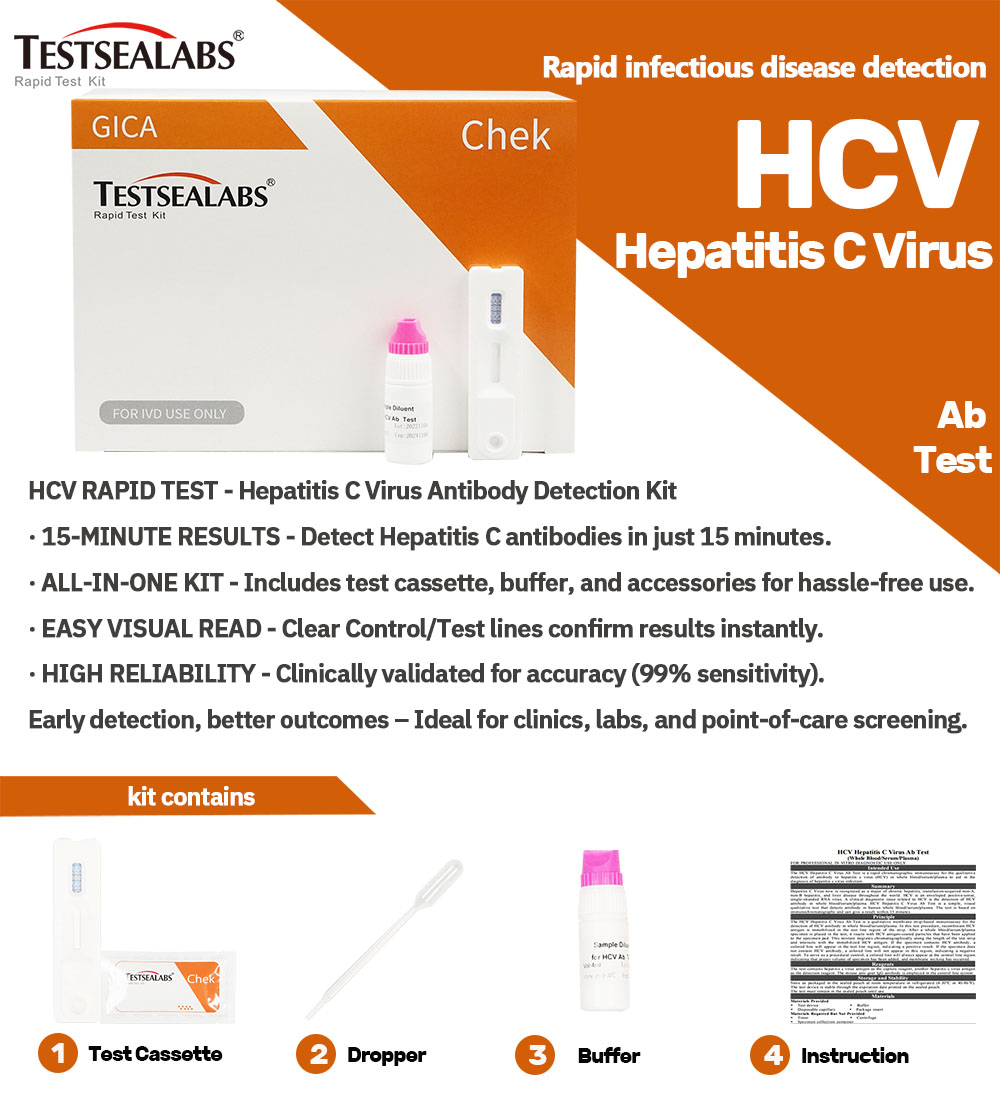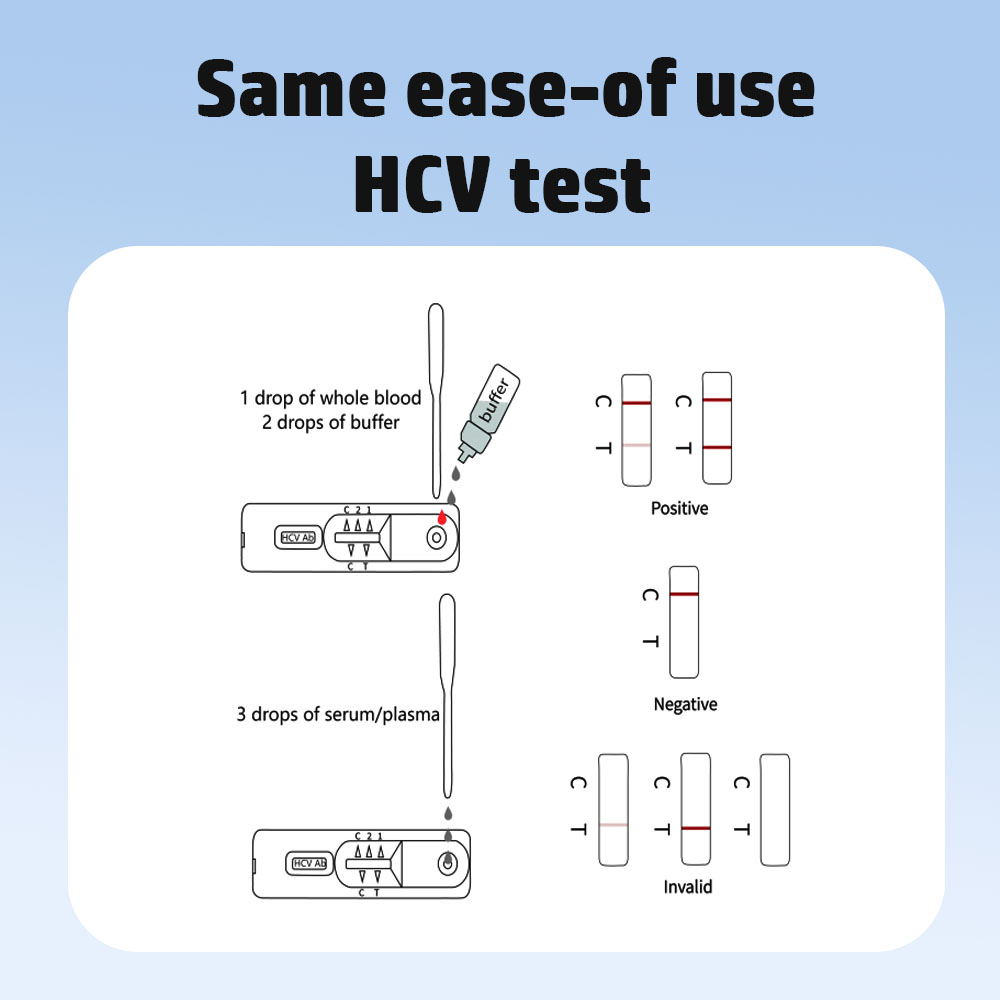Testsealabs Disease Test HCV Ab Rapid Test Kit



Product Detail:
- High Sensitivity and Specificity
Designed to accurately detect anti-HCV antibodies, providing reliable results with minimal risk of false positives or false negatives. - Rapid Results
The test provides results within 15–20 minutes, facilitating timely decisions regarding patient management and follow-up care. - Easy to Use
The test is simple to administer with no need for specialized training or equipment, making it suitable for use in various healthcare settings. - Versatile Sample Types
The test works with whole blood, serum, or plasma, providing flexibility in sample collection. - Portable and Ideal for Field Use
The compact and lightweight design of the test kit makes it ideal for mobile health units, community outreach programs, and public health campaigns.
Test Procedure:

The HCV Rapid Test Kit works based on immunochromatography (lateral flow technology) to detect antibodies to Hepatitis C Virus (anti-HCV) in the sample. The process includes the following steps:
Sample Addition
A small amount of whole blood, serum, or plasma is added to the sample well of the test device, along with a buffer solution.
Antigen-Antibody Reaction
The test cassette contains recombinant HCV antigens that are immobilized on the test line. If anti-HCV antibodies are present in the sample, they will bind to the antigens and form an antigen-antibody complex.
Chromatographic Migration
The antigen-antibody complex migrates along the membrane through capillary action. If anti-HCV antibodies are present, they will bind to the test line (T line), creating a visible colored band. The remaining reagents will migrate to the control line (C line) to confirm that the test has functioned properly.
Result Interpretation
Two lines (T line + C line): Positive result, indicating the presence of anti-HCV antibodies.
One line (C line only): Negative result, indicating no detectable anti-HCV antibodies.
No line or T line only: Invalid result, requiring a repeat test.









